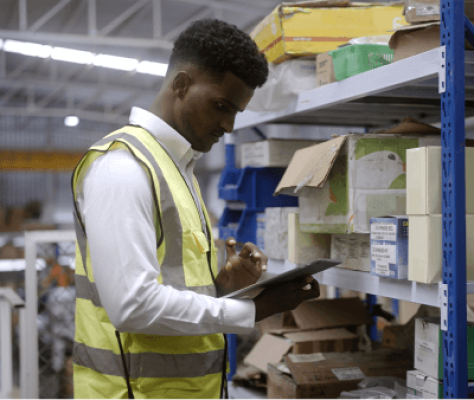“Retail matters”; that was the declaration last week by the Editor-In-Chief of RetailWeek at the start of their 2017 flagship conference in London. It might be biased for the leading-UK retail conference to declare their industry is important, but after two days of keynotes, breakout sessions and rubbing shoulders with the industry’s most influential figures it’s clear to see that, yes, retail does matter and that the trends mentioned actually transcend the retail industry; they’re applicable to everyone.
Don’t worry though, if you missed the event we’ve covered off our top eight trends from the conference below. Hear where everyone from Tesco (the UK’s largest grocery chain) to Alibaba is placing their bets:
- Omnichannel may be a buzzword, but retailers are still trying to make it happen. Buzzword bingo is the go-to conference accompaniment, and even though ‘omnichannel’ has been kicking around for nearly a decade, its prominence during RetailWeek Live shows it’s still relevant today. The change in focus is due to the increasing importance of mobile. Mike Coupe, CEO of supermarket giant Sainsbury’s, stated that 60% of sales in its recently acquired Argos business were now online, and £1bn of those sales were on mobile. This was reinforced by Google who announced that, for the first time, searches for apparel were higher on mobile than desktop. It’s something we know GANT was starting to tackle and the industry clearly still requires support in forming a truly single view of operations and the customer.
- Emerging markets pose huge opportunity … and challenges. The number of high profile speakers from emerging markets, including Alibaba and JD.com, demonstrates that the sleeping giants aren’t sleeping any longer. The CEO of cinema chain VUE Entertainment even admitted that China is the one market where they’re “slightly” ahead. The European MD of Alibaba neatly summarised the trend when outlining that China is on the path to becoming the largest economy in the next decade, presenting great opportunity, but enormous complexity as well. You’d be naive to assume you can treat this market homogeneously; it’s big into mobile (82% of traffic on Singles Day was through mobile), which means personalization is paramount – something the rest of the world is still getting to grips with. ‘Partner with current incumbents for quicker success’ was the advice to heed from Alibaba.
- There is a need for speed. Time and time again the attendees declared that the pace of change was accelerating; ‘It’s like walking up a hill and stopping for a sandwich…four people will pass you’ lamented industry veteran, Lord Rose.The Chief Customer Officer for Kingfisher shared how they’re approaching this by picking their battles and placing their strengths in an aligned manner. Both Alibaba and ShopDirect (a multi-brand online retailer) backed the approach of ‘testing your way to success’ i.e. failing fast and moving on, and having the courage to change business models and offerings. As Mike Coupe states, “Speed is one of the utilities of our [retail] market, ” and this presents an opportunity for the brave. The CEO of JML casually summarised with, “there’s never been a better time to sell stuff.”
- Stay human: No matter how much technology took center stage over the two days, a recurring theme was that, when all is said and done, we’re still “human” and those who forget that the ‘customer is king’ will be marginalized. Airbnb illustrated how their research showed the ‘human touch’ was the difference between a 4-star and a 5-star review for their hosts. Google called it adding ‘magic’ to the experience. This was a reminder that while numbers on a spreadsheet are important, how these translate to the experiences of customers who are contending with everyday lives is still the most important factor.
- Staying human extends internally: It was clear that for colleagues to deliver a ‘magical’ experience retailers have to recognise that working styles are changing and keeping staff productive requires new motivations. Technology was an enabler to this, with the likes of Tesco launching an app so that all workers could check rotas and book vacations from their fingertips. This was backed up by the announcement from Asda, owned by Wal-Mart, this week that they’re introducing flexible working for staff. Similarly, retail legend Lord Timpson introduced his mantra of “upside down management” which he argued is keeping his bricks and mortar stores alive. This involves empowering frontline staff to have flexibility in how they run the store, how they serve customers and even how much they charge.
- To achieve personalization, you need (a lot) of customer data. Personalization is not new but has become increasingly complex as retailers aim to offer personalization and ‘stay human’ at scale. This was mentioned by almost every speaker. Why? Because customers are more ‘impatient’ than ever and retailers need to stand out within 3 seconds. Tesco described how their research shows customers have 20mins less every day to shop and cook. Perhaps this is offset by the UK MD of Snapchat’s declaration that their users spend an average 20mins a day on their platform. Keeping up to speed with new channels to market, such as this, were viewed as crucial. Catalogue-retailer Argos shared that their strategy was to use data to decide at “which moment” they personalize rather than trying to personalize every interaction. Working with Coca-Cola, we know the importance of having a 360-degree view of your customer to offer that level of personalization and how ultimately, all this data crunching means new tools and colleagues (such as Data Scientists) to realize.
- AI and chatbots are disrupting communication. Creeping up on the conference circuit during the last couple of years has been the talk of AI, and their earliest manifestation in the use of chatbots. This is to help achieve personalization at scale, and it’s something ShopDirect are trialing on their very.com brand to early success. Many mentions of moving into an “AI-first” world were noted, but retailers remained hush on any big plans in how to actually implement. With the speed of change quickening, though, I’d place bets on this being a major focus next year as trailblazers start to report back concrete successes.
- Breathe in, the consumer squeeze is coming: Given the backdrop of Brexit, the economic climate was top of mind for retailers. Industry veteran Lord Rose commented that it will ultimately lead to a consumer squeeze, which means rising prices and even more competition to grab the attention of distracted consumers. Of course, there’s always two sides of the story, and this was rebuffed passionately by Roger Bootle, a leading Economist, who stated that retail is an industry built on resilience and changing customer demand…this is just simply something else “we will deal with.” So … what are you waiting for?
Do you agree? Tell us what you think in the comments below! And for more on retail industry trends read our freshly launched ebook, Project Nightingale: A Revolution in Retail IT.








